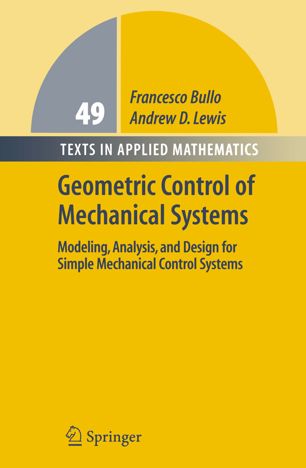

Most ebook files are in PDF format, so you can easily read them using various software such as Foxit Reader or directly on the Google Chrome browser.
Some ebook files are released by publishers in other formats such as .awz, .mobi, .epub, .fb2, etc. You may need to install specific software to read these formats on mobile/PC, such as Calibre.
Please read the tutorial at this link: https://ebookbell.com/faq
We offer FREE conversion to the popular formats you request; however, this may take some time. Therefore, right after payment, please email us, and we will try to provide the service as quickly as possible.
For some exceptional file formats or broken links (if any), please refrain from opening any disputes. Instead, email us first, and we will try to assist within a maximum of 6 hours.
EbookBell Team

4.8
104 reviewsThe primary emphasis of this book is the modeling, analysis, and control of mechanical systems. The methods and results presented can be applied to a large class of mechanical control systems, including applications in robotics, autonomous vehicle control, and multi-body systems. The book is unique in that it presents a unified, rather than an inclusive, treatment of control theory for mechanical systems. A distinctive feature of the presentation is its reliance on techniques from differential and Riemannian geometry.
The book contains extensive examples and exercises, and will be suitable for a growing number of courses in this area. It begins with the detailed mathematical background, proceeding through innovative approaches to physical modeling, analysis, and design techniques. Numerous examples illustrate the proposed methods and results, while the many exercises test basic knowledge and introduce topics not covered in the main body of the text.
The audience of this book consists of two groups. The first group is comprised of graduate students in engineering or mathematical sciences who wish to learn the basics of geometric mechanics, nonlinear control theory, and control theory for mechanical systems. Readers will be able to immediately begin exploring the research literature on these subjects. The second group consists of researchers in mechanics and control theory. Nonlinear control theoreticians will find explicit links between concepts in geometric mechanics and nonlinear control theory. Researchers in mechanics will find an overview of topics in control theory that have relevance to mechanics.